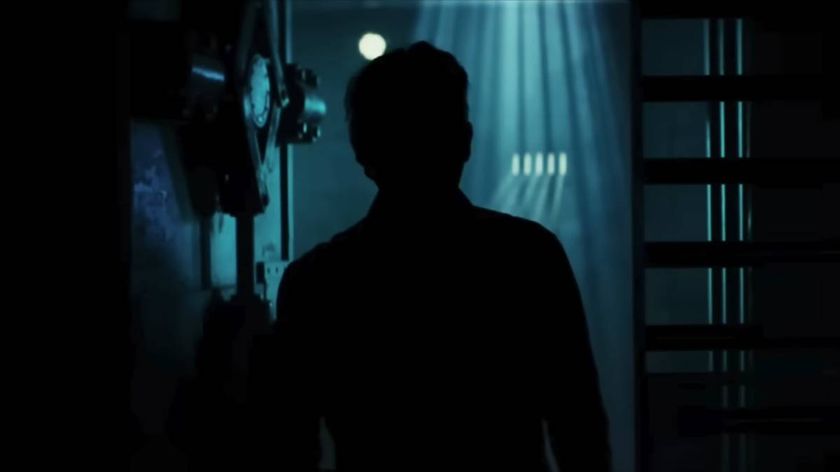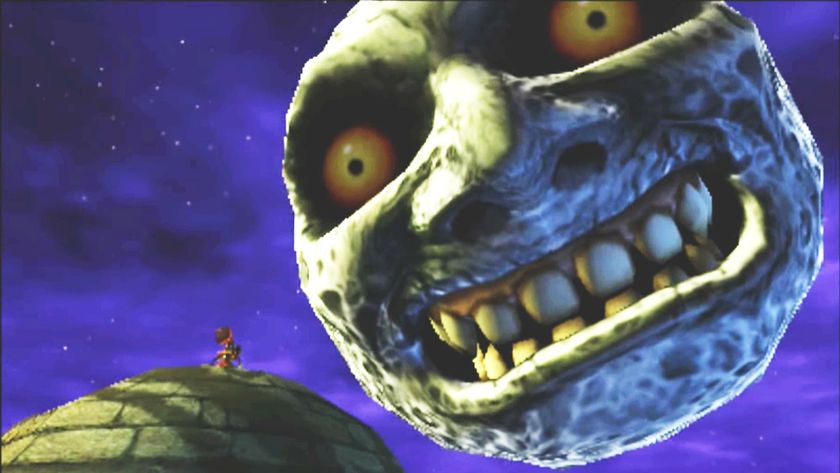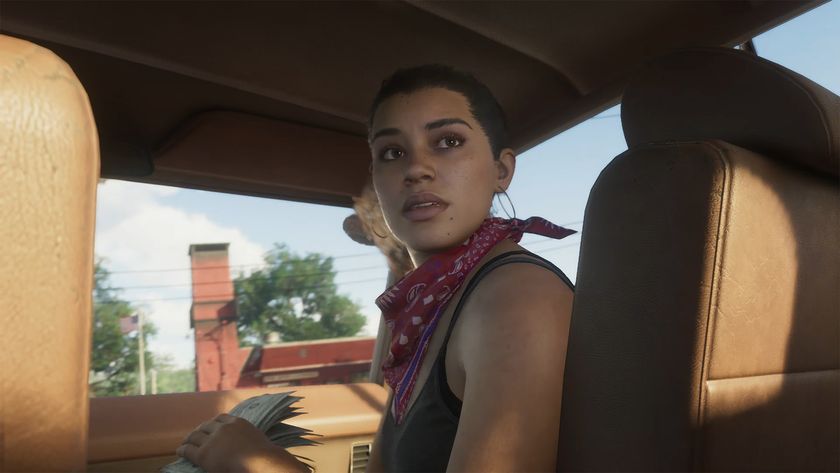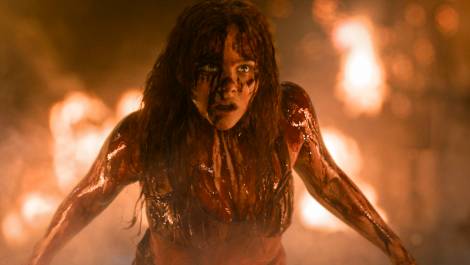Why you can trust 12DOVE
‘You will know her name’ runs the tagline, which pretty much sums up Hollywood’s thinking over the last nine years. Ever since Zack Snyder’s 2004 re-run of George Romero’s Dawn Of The Dead , we’ve had remakes of just about every recognisable horror movie of the ’70s and ’80s.
Given the purity of Stephen King’s 1974 source novel – an archetypal revenge-of-the-nerd tale set in school, meaning everyone can relate – it’s astonishing we’ve had to wait this long. And that’s before you consider how Brian De Palma’s barnstorming 1976 adap lodged images of Sissy Spacek drenched in pig’s blood in the public consciousness.
‘You Will Know Her Name’? Yes, we will, all of us, even those who’d sooner gouge out their own eyeballs than watch a horror movie; and yet the less famous likes of Black Christmas , Mother’s Day , Sorority Row and My Bloody Valentine all beat Carrie to the remake party.
For anyone who’s spent their life locked in a cupboard, Carrie tells of the eponymous ugly duckling (Chloë Grace Moretz); bullied at school and oppressed at home by her religious fanatic mother (JulianneMoore).
Within minutes of meeting our ostracised heroine, she suffers the indignity of having her first period while showering after gym class; uncomprehending, her ordeal is made a whole lot worse by über-bitch Chris (Portia Doubleday) leading the class in a chant of “Plug it up!” while hurling tampons at Carrie’s cowering form.
Sue Snell (Gabriella Wilde) feels guilty for her part in the group assault. To make amends, of sorts, she persuades her popular jock boyfriend Tommy (Ansel Elgort) to invite Carrie to the prom. Carrie shyly accepts, resisting the remonstrations of her mother and looking pretty in a pink, homemade dress while enjoying her first dance. She at last possesses a shred of self-worth, empowerment, happiness, and then… We’ll stop there, though chances are ‘You Will Know The Ending’.
Oh, one more thing: Carrie has the gift/curse of telekinesis. It’s easy to forget, given the universality of the story, with the best and worst of human behaviour on display. (Mainly worst.) But it’s Carrie’s ability to move objects with her mind that fuels the hell-hath-no-fury finale.
Wisely, director Kimberly Peirce (whose excellent Boys Don’t Cry also deals with class, otherness and abuse) returns to King’s book to spend more time with Carrie as she experiments with her fledgling powers.
This makes sense: Carrie’s psychic abilities develop in accordance with physical changes, and what teenager can leave themselves alone at this time? But while there’s fun to be had from watching Carrie gaze out of the classroom window to set the school flag flapping, or sit upon her levitating bed like she’s just watched The Exorcist on Netflix, her newfound sovereignty presents problems.
In De Palma’s picture, Carrie wreaks revenge in a fugue state; her powers whiplash like severed power cords to kill indiscriminately. In Peirce’s movie, Carrie knows exactly what she’s doing, her command apparent in her black, Photoshopped eyes and J-horror body jerks. She’s gone to the dark side, and she’s forgotten to take our sympathy with her.
Shame, because Moretz overcomes her miscasting (too pretty, too confident, too Hollywood ) with pained eyes, even if she does overplay the clenched, shrunken body language in an effort to camouflage her natural self-possession.
A fair amount of the revision works, from Chrissy recording Carrie’s humiliation in the showers and posting it online, to Moore’s nutjob mom gouging her own legs in penance, to Peirce’s unwillingness to try to match De Palma’s pyrotechnic technique, opting instead for a naturalistic palette and less forceful cuts.
That Peirce also jettisons the overtly ’70s flourishes – split-screen, prism effects, speeded-up footage of Tommy trying on tuxes – is prudent, as is her refusal to subject her teen cast to full-frontal, slo-mo nudity in the opening set-piece.
Other tweaks are less successful: Carrie’s penchant for #Vadering her tormentors; Chris 2.0 being upgraded from petty bully to cold-blooded psycho (making the film far less easy to identify with); and a horribly lame, tame coda. Of course, matching De Palma’s infamous hand-from-the-grave sting was never an option – not least because it was the genre’s original tag-on shock – but this half-hearted jump only draws attention to another pimple on the new Carrie : it’s just not scary.
Verdict:
One of the more solid ’70s horror remakes, but it lacks the verve and potency, romance and heartache of the original. Still, the haircuts are a vast improvement...



Jamie Graham is the Editor-at-Large of Total Film magazine. You'll likely find them around these parts reviewing the biggest films on the planet and speaking to some of the biggest stars in the business – that's just what Jamie does. Jamie has also written for outlets like SFX and the Sunday Times Culture, and appeared on podcasts exploring the wondrous worlds of occult and horror.

Captain America: Brave New World director hints at why and when The Leader's divisive look was changed

Despite Zelda: Majora's Mask basically being a horror game, one of its key devs didn't think its creepiest features were scary at all: "People on the team were like 'whoa!'"

Corsair exec says GTA 6 is coming to PC in early 2026 and then quickly un-says that
Most Popular





